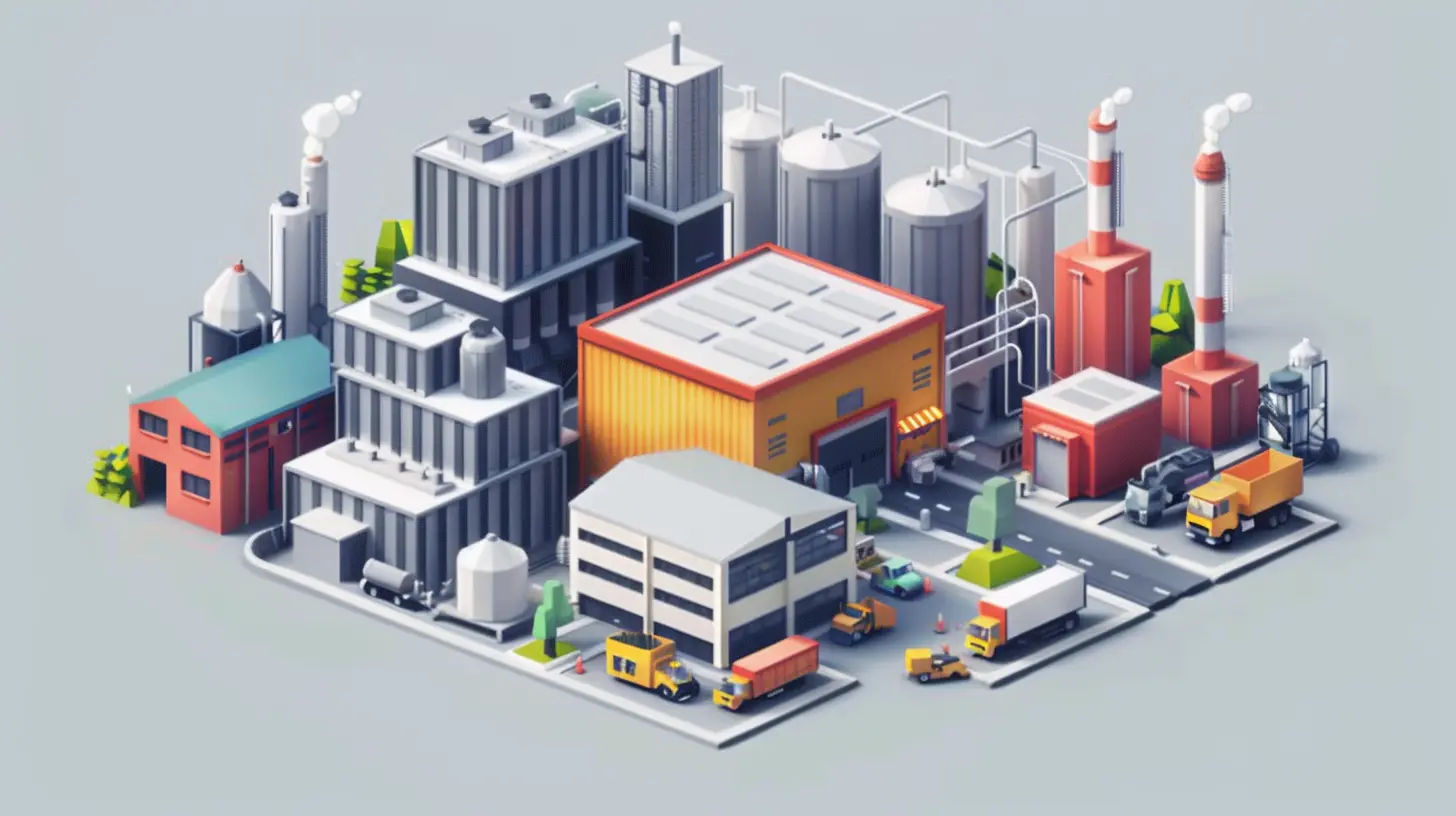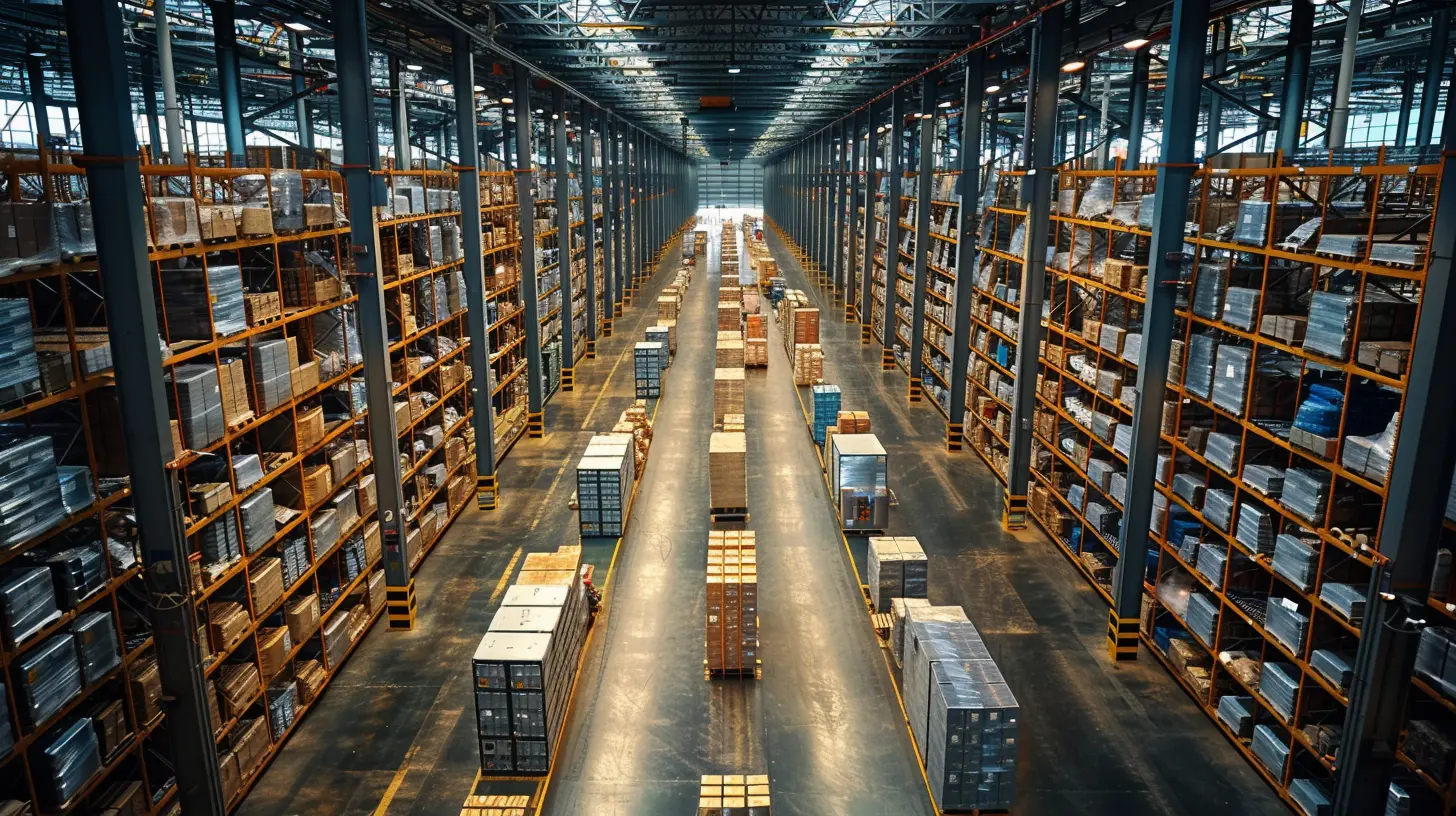The Growing Impact of Localized Manufacturing Hubs
5 September 2025
Let’s talk about something that’s shaking up the business world faster than a toddler on a sugar high—localized manufacturing hubs! They’re popping up like mushrooms after a downpour, and honestly, they’re changing the game for businesses, communities, and even the environment. You might be wondering: What’s all the fuss about? Don’t worry, I’ve got you covered. We’re about to dive deep into this topic, but in a way that won’t make you feel like you’re reading a textbook. Ready? Let’s roll! 
What Exactly Are Localized Manufacturing Hubs?
Okay, let’s break it down. Imagine you’re baking cookies—not just any cookies, but grandma’s secret-recipe cookies. Now, you could ship the dough halfway across the world to be baked in a giant factory and then send the cookies back to your town. Sounds ridiculous, right? That’s pretty much what global supply chains have been doing for years.Localized manufacturing hubs flip that script. These are smaller, strategically placed facilities that produce goods closer to where they’ll actually be used or sold. Think of them like a cozy neighborhood bakery instead of some far-off cookie conglomerate. They’re nimble, efficient, and, honestly, just make a lot more sense. 
Why Are Localized Manufacturing Hubs Gaining Traction?
1. The Supply Chain Saga
Remember the chaos when the pandemic hit? Delayed shipments, skyrocketing prices, and even toilet paper wars (yes, that happened). Global supply chains proved to be about as reliable as a weather forecast from your great-uncle Joe. Enter localized manufacturing hubs. By cutting down the distance between production and consumption, they can dodge many of these logistical nightmares.Oh, and let’s not forget the shipping costs! Moving goods across continents is like paying for first-class airfare—except you’re shipping screws and widgets, not sipping champagne at 36,000 feet. Local hubs slash those costs like a samurai with a mission.
2. Eco-Friendly Vibes
Global manufacturing isn’t just tough on wallets; it’s tough on the planet too. Cargo ships guzzle fuel like there’s no tomorrow, and the carbon footprint? Don’t get me started. Localized hubs, on the other hand, are like that friend who rides a bike everywhere and carries a reusable coffee mug. They’re just… greener.By producing goods closer to home, you cut down on shipping emissions, packaging waste, and energy use. It’s a win-win for companies and Mother Earth.
3. The Job Boom
When a manufacturing hub sets up shop in your town, it’s like the circus coming to town—but with steady paychecks instead of overpriced cotton candy. Local hubs create jobs and stimulate the local economy. It’s like planting seeds in your backyard and watching them grow into a lush garden. Except instead of veggies, you’re getting thriving businesses and opportunities.
The Business Case for Going Local
Now, you might be thinking: “Okay, this all sounds great, but what’s in it for businesses?” Oh, my friend, strap in, because the benefits are chef’s kiss.1. Agility Like a Ninja
Businesses that rely on localized hubs can adapt faster than a chameleon in a paint store. Got a surge in demand? No problem. Need a quick design change? Done. Local hubs mean less waiting and more doing.Think about it: Would you rather wait weeks for a sweater shipped from overseas or get one made right in your town in days? Exactly.
2. Brand Love
Supporting local isn’t just trendy—it’s powerful. Customers love businesses that invest in their communities. When you produce locally, you’re not just selling a product; you’re selling a story. And people love a good story.Picture this: “Our products are crafted right here in your hometown by skilled artisans.” Sounds way better than, “Uh, yeah, we make these in a factory 5,000 miles away.”
3. Reduced Risk
Relying on far-flung factories comes with a laundry list of “what ifs.” What if there’s a port strike? What if a natural disaster hits? What if someone sneezes funny and disrupts the whole supply chain? Local hubs minimize these risks by keeping things close to home.
The Challenges (Because Nothing’s Perfect)
Alright, time for some real talk. Localized manufacturing hubs aren’t all sunshine and rainbows. There are a few hurdles to jump over.1. Cost Considerations
Setting up and running local hubs can be pricier than using massive overseas factories at first. Labor costs tend to be higher, and economies of scale aren’t as easy to achieve. But hey, it’s like buying a quality pair of shoes—they might cost more upfront, but they save you money (and blisters) in the long run.2. Limited Resources
Not every region has access to the raw materials or specialized skills needed for certain products. It’s like trying to make guacamole without avocados—not impossible, but not ideal either.3. Regulatory Red Tape
Local hubs can face a maze of zoning laws, permits, and other bureaucratic hoops. It’s like playing an escape room game, but with fewer clues and more paperwork.Industries That Are Crushing It with Local Hubs
Some industries have embraced localized manufacturing hubs like a long-lost sibling. Let’s take a peek at a few of them:1. Food and Beverage
Ever noticed how craft breweries and small-batch bakeries are everywhere these days? Food and beverage companies are champions of going local. Who wouldn’t want fresher, tastier products made just around the corner?2. Apparel
Fast fashion might dominate the malls, but locally made clothing is having a major moment. Sustainable, ethically produced, and unique—what’s not to love?3. Tech and Gadgets
You’d think tech manufacturing would stay overseas forever, but even this sector is seeing a shift. Custom 3D printing and small-scale electronics production are becoming more localized. Nerdy? Sure. Revolutionary? Absolutely.The Future of Localized Manufacturing Hubs
So, where do we go from here? Are localized manufacturing hubs just a fad, or are they here to stay? Spoiler alert: They’re not going anywhere.Technology like AI, robotics, and advanced 3D printing is making it easier (and cheaper) to produce goods locally. Plus, with global trade tensions and environmental concerns on the rise, businesses are under more pressure than ever to rethink their strategies.
Localized manufacturing hubs aren’t just the future—they’re the present. And whether you’re a business owner, an employee, or just a regular ol’ consumer, that’s something to be excited about.
Wrapping It Up
So, there you have it—a fun and (hopefully) enlightening look at the growing impact of localized manufacturing hubs. They’re efficient, eco-friendly, and community-driven. Sure, there are challenges, but they’re far outweighed by the benefits.In a world that’s becoming more unpredictable by the day, localized hubs are like that reliable friend who always shows up when you need them. And honestly? We could all use a little more reliability right now.
all images in this post were generated using AI tools
Category:
Business TrendsAuthor:

Remington McClain
Discussion
rate this article
1 comments
Giovanna Carrillo
Localized manufacturing hubs are reshaping industries by boosting local economies, reducing supply chain risks, and enhancing sustainability. Embracing this shift is essential for businesses to remain competitive in a rapidly changing market.
September 25, 2025 at 12:33 PM

Remington McClain
Thank you for highlighting the critical role of localized manufacturing hubs! Their ability to strengthen local economies and improve sustainability is indeed vital for businesses navigating today's dynamic market.


